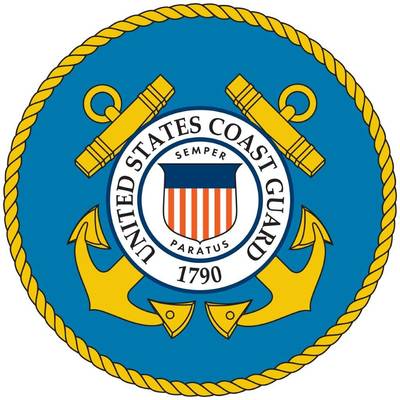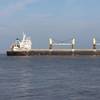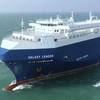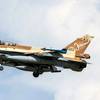Coast Guard Conducts Operation "Make Way"
Coast Guard to conduct Operation Make Way on Columbia and Willamette Rivers.
The Coast Guard is stressing the importance of the law requiring smaller vessels to stay out of the path of larger oncoming vessels by conducting Operation Make Way this fall fishing season. Operation Make Way is a joint recreational boater education and enforcement campaign designed to help boaters understand the need to give way and stay clear of commercial deep draft vessels on the Columbia and Willamette Rivers.Rule 9 in the Navigational Rules of the Road requires recreational boaters to give way to larger vessels restricted in their ability to maneuver. Recreational fishermen, often caught up in the excitement of a day on the water, frequently neglect to give way to larger vessels in a timely manner. Waiting until the last second to move from the path of these larger vessels is illegal and highly dangerous.
“Large congregations of boaters recklessly put themselves and their passengers at risk this time of year, waiting until deep draft vessels sound their warnings the second time before moving,” said Capt. Bruce Jones, Sector Columbia River commander and Captain of the Port. “These boaters are essentially playing chicken and pilots of larger vessels have expressed deep concern.”Commercial vessels such as tug and tows, deep draft vessels and passenger cruise vessels cannot maneuver quickly and must stay on course to remain in deep water. To maintain steerage on the river's powerful currents they must travel at a moderate rate of speed. At these speeds it can often take more than a mile for these heavy vessels to stop. Making way for larger vessels promotes the safety of all mariners on the river. Boaters in violation will be subject to fines that will be enforced by local, state and federal authorities.
The Coast Guard encourages all boaters, in addition to making way for larger vessels, to follow other simple procedures to stay safe on the water.
Life jackets: Life jackets save lives! Statistics show that a person's chance of survival greatly improves when wearing a life jacket. Before boating, be sure that all life jackets are in good shape, fit properly, and are stowed in an easily accessible location.
Stay sober: Operating a boat under the influence of intoxicants is illegal and dangerous. Operating a vessel under the influence not only puts the passengers on the vessel at risk, it puts everyone on the river at risk.
Marine radio: Investing in a good marine radio is a very smart purchase. Cell phones should never be used as the primary form of communication on a vessel. The reception in some areas of the river may be poor or non-existent and precious time could be lost if an emergency arises. A marine radio has many advantages such as a strong signal and channels reserved for distress calls. Mariners may contact the Coast Guard on VHF-FM Channel 16. Distress calls are received by everyone monitoring a VHF radio in range, allowing for quick response in cases of emergency. Newer radios also feature digital selective calling which will broadcast your vessel's location at the push of a button.
Situational awareness: Be aware of your surroundings at all times. Listen to weather forecasts. Know the limitations of your vessel. Most recreational vessels are not equipped to handle strong currents and can be overcome fairly easily. File a float plan: Let a friend or family member know where you're going, when you plan to return and what to do in an emergency.













